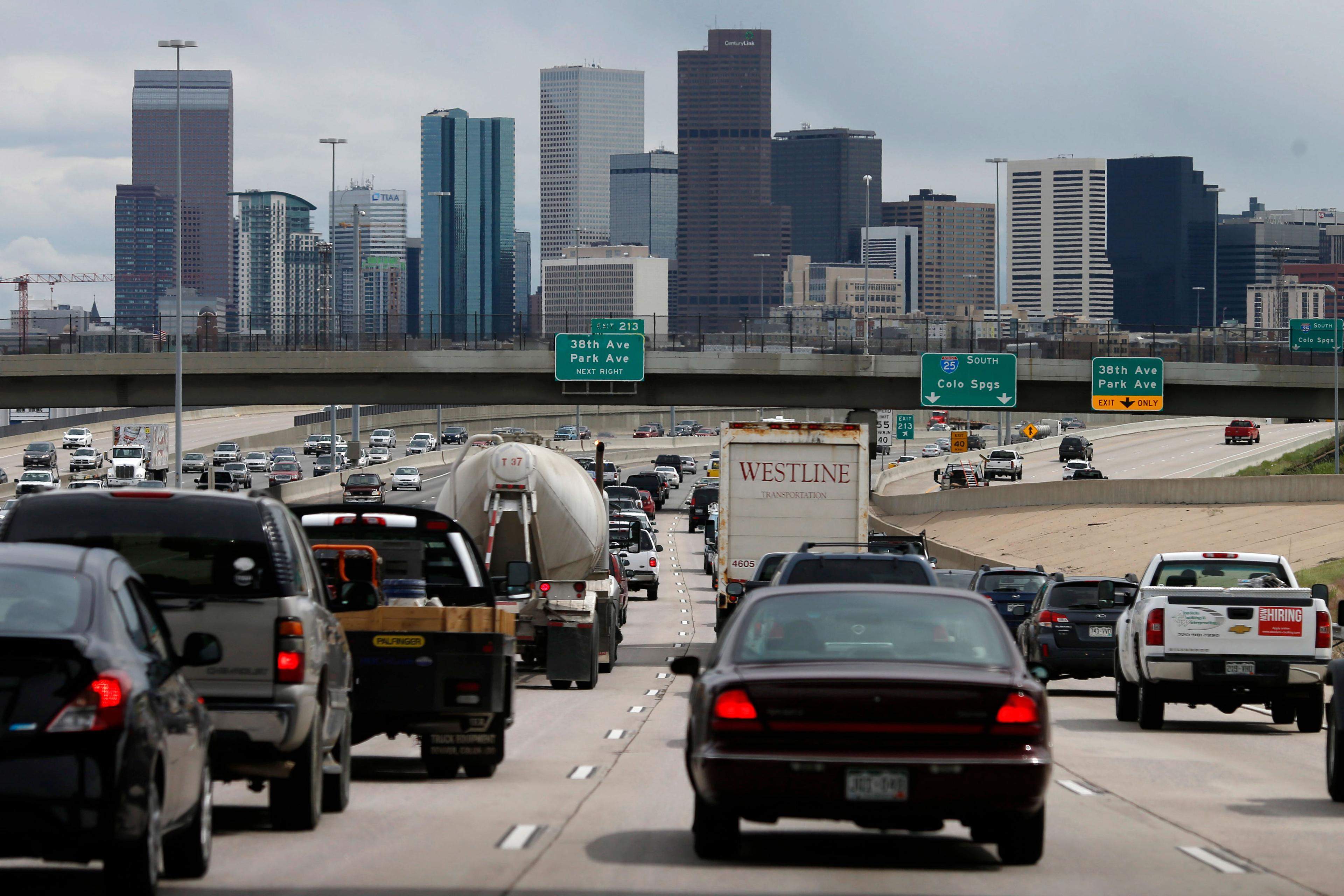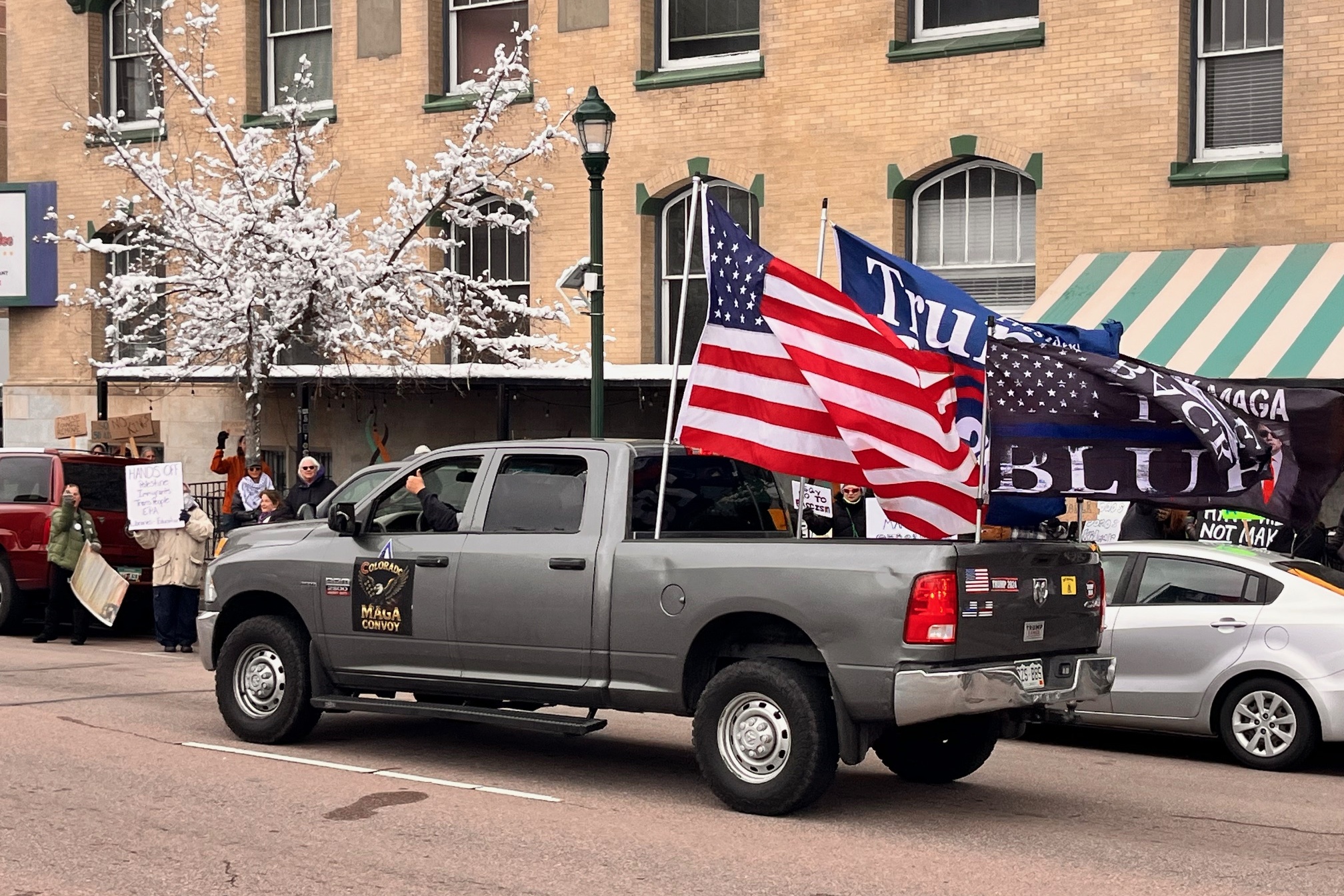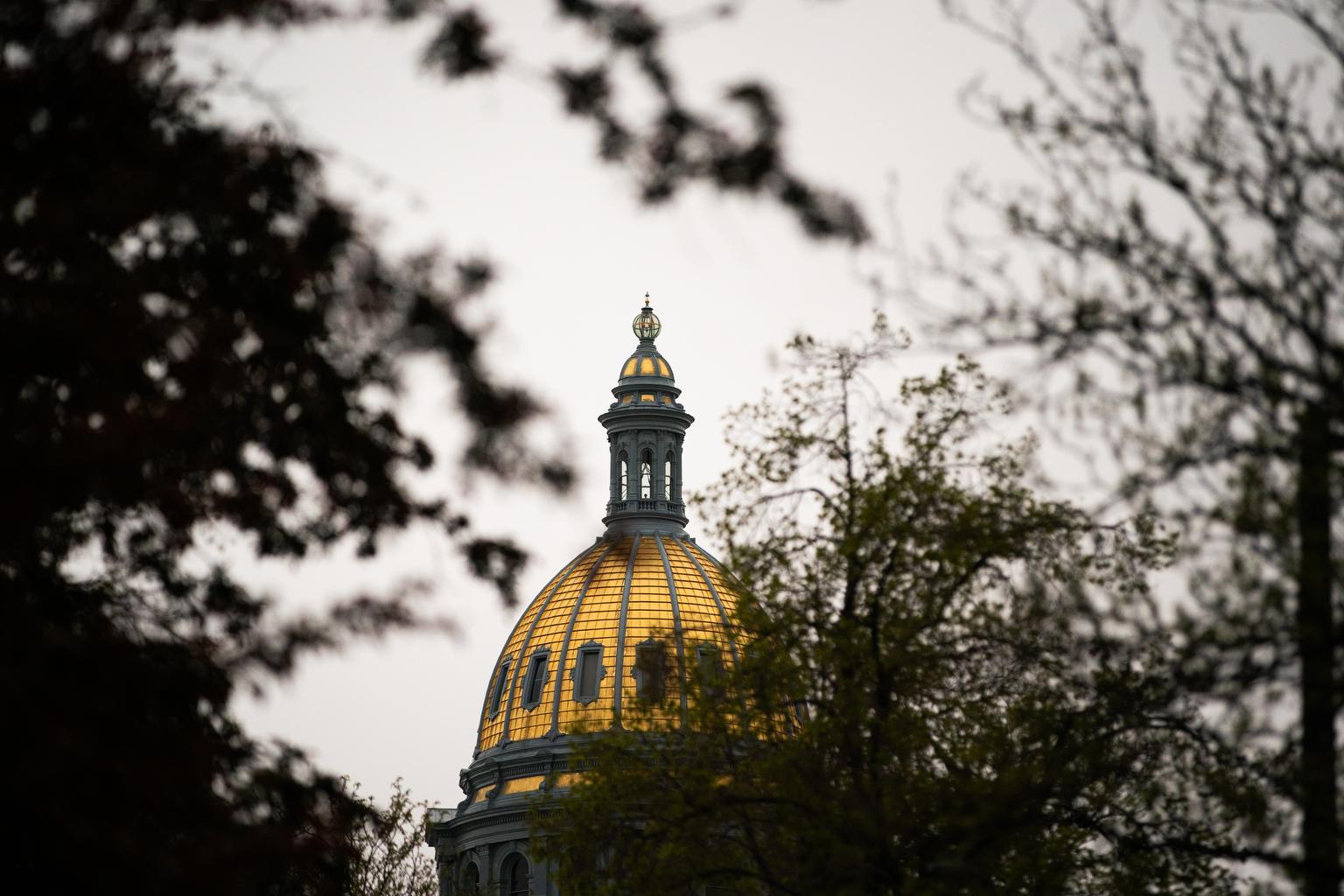
"California" has become more than just a diss tossed at transplants by Colorado natives.
It's become the language of political attacks, particularly from the right. It's by turns the scapegoat and the true root of concerns about traffic, housing costs and teacher pay. For some, it summons up an image of what Colorado has lost, and for others of what, for better or worse, is to come.
Numbers tracking migration between Colorado and California reveal a more balanced situation. But that doesn't change the fact that the impact on some longer-term Colorado residents is tangible.
Who Is Impacted When Colorado's Population Grows?
Kris Davidson took pride in sending her youngest son to a school in downtown Denver. But as traffic got worse and pushed the commute time to over an hour, her family made a tough decision.
"As much as we loved the school that we took our son to, we decided let’s find a school in the neighborhood so we don’t have to do that commute everyday," Davidson said.
And when it came time to stop renting and become homeowners, Davidson and her husband faced challenges familiar to many Coloradans. To even be considered, they had to make an offer above asking price within a day of seeing the home. They were beat out over and over again by all-cash offers.

Davidson assumed those cash buyers were transplants from more expensive cities on the coasts, specifically California.
"A lot of times you’ll hear people say, 'I moved to Colorado because we couldn't afford a house in California,'" Davidson said. "Colorado has so many things to offer, so it’s a little off-putting when you hear somebody say that the main reason why they moved here is because they could afford it, and that’s pretty much it."
Robert Ragno is a California-to-Colorado migrant. A California native, he attended the University of Colorado Boulder until 2011, then returned to the Bay Area, but he missed the mountains and envied Colorado's lower housing costs.
Colorado "still seems affordable to me, but I realize from someone’s perspective who might have grown up here the amount it’s increased is also very sizeable," he said.

Two years ago he made the move back to the Boulder area. Since then, he says, he hasn't felt the burn of "California" insults.
"You see the native bumper stickers on cars, but I’ve never met anybody in person who’s expressed that opinion," Ragno said. "It’s more anecdotally, or I’ll read (it) online or in the comments somewhere. It’s just a lot of misunderstanding and people online being anonymous."
Let's Do The Numbers
Of course, it's more complicated than either Davidson or Ragno can see.
How many Californians migrate to Colorado each year? Nearly 27,000 in 2016 alone. But that number marks a drop from the year before. And considering that California is by far the most populous state in the country, Colorado state demographer Elizabeth Garner isn't surprised that it provides the biggest influx.
And, in a twist, an increasing number of Coloradans are actually making the leap to California. Just over 22,500 Coloradans moved west in 2016.

Garner has seen the California numbers flatten recently. But as long as there are high-tech jobs in Colorado to fill, she believes the state will attract more people. One public-private group, Pivot to Colorado, is even actively poaching workers from the Bay Area.
"If we continue to grow jobs, we will continue to attract people. Is it going to be harder and harder? Probably, unless something happens significantly with our housing market to make that more affordable," Garner said.
How California Became A Weaponized Word
While migration from California is slowing, that hasn't stopped California from becoming a buzzword for right-leaning political groups and thinkers. An attack ad against Jared Polis from the Republican Governors Association posits a Governor Polis would remake the state into "Radicolorado," a clone of California.
Will ads like these sway voters? It's possible. Magellan Strategies pollster David Flaherty regularly asks voters to name the top issue they want Colorado's next governor to solve. Almost all those problems -- including education, housing and traffic -- can be traced back to growth.
"There’s just an overwhelming perception that too many people are moving here, and that we’re not able to get around and move as easily as we used to," Flaherty said.
If voters take issue with the "Californication" of Colorado, it may stem less from daily commutes and more from what they feel the coastal state represents, according to one local activist.
Jon Caldara, who heads the conservative Independence Institute, uses California as a proxy for the growth of government in Colorado. He points to soda and bag taxes in the Front Range, and increasing calls for gun control.
"It’s not the numbers of people coming into Colorado, it’s the culture that they’re bringing in with them. We call that the Californian culture. It doesn’t mean you’re from California necessarily, but ... instead of craving freedom to make your own decisions, you demand the authority to make decisions for other people," Caldara said.
Whether California is problem or scapegoat, emblem of change or real-life agent of it, Coloradans will continue to have their attitudes. Local journalist David Gilbert responded to a CPR call for opinions on Twitter.
"My family arrived in 1994, when I was 7. It feels way too crowded, and I miss the old days terribly, but (people) said the same thing about my kind in the '90s. Everybody just wants to be the one to shut the door behind them," Gilbert wrote.
"Whatever Colorado you fall in love with, you'll lose it."









